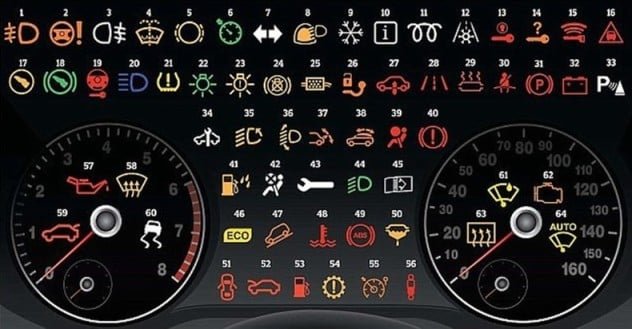As a car owner, it’s essential to understand the warning signs that your vehicle may give you. Recognizing these signs and addressing them in a timely manner can help prevent more significant issues and costly repairs down the line. In this guide, we will explore some common warning signs that your car may exhibit and what they could mean for your vehicle’s health.
1. Dashboard Warning Lights
One of the most obvious signs that something may be wrong with your car is the appearance of dashboard warning lights. These lights are designed to alert you to potential issues with various systems in your vehicle. Examples of common warning lights include the check engine light, ABS light, and battery light.
When a warning light illuminates on your dashboard, it’s crucial not to ignore it. Instead, consult your vehicle’s owner manual to determine what the light indicates. In some cases, the issue may be minor and easily fixable, such as a loose gas cap. However, in other instances, it may indicate a more significant problem that requires immediate attention from a qualified mechanic.
2. Strange Noises
If you notice any unusual noises coming from your car, it’s essential to investigate the source. Strange noises can indicate a range of issues, from minor problems to major mechanical failures. Here are a few common noises and their potential causes:
- Squealing or screeching: This could indicate worn-out brake pads or a loose belt.
- Grinding or growling: This may suggest a problem with your car’s transmission or wheel bearings.
- Rattling or knocking: These noises could be a sign of engine trouble, such as a loose or damaged component.
If you hear any of these noises, it’s best to have your car inspected by a qualified mechanic. They can diagnose the issue and recommend the necessary repairs to ensure your vehicle’s safety and longevity.
3. Strange Odors
Unusual odors inside or outside your car can also be warning signs of potential problems. Here are a few common odors and what they may indicate:
- Burning smell: This could be a sign of an overheating engine, a worn-out clutch, or an electrical issue.
- Musty or moldy smell: This may suggest a water leak, which can lead to interior damage and mold growth.
- Rotten egg smell: This odor is often associated with a malfunctioning catalytic converter, which can affect your car’s emissions.
If you notice any strange odors, it’s essential to have your car inspected by a professional. They can identify the source of the smell and recommend the appropriate repairs to address the underlying issue.
Conclusion
Understanding your car’s warning signs is crucial for timely auto repair. By paying attention to dashboard warning lights, strange noises, and unusual odors, you can catch potential issues early and prevent further damage to your vehicle. Remember, when in doubt, it’s always best to consult a qualified mechanic who can diagnose the problem and provide the necessary repairs to keep your car running smoothly and safely. Read more recognizing car maintenance signs here.

